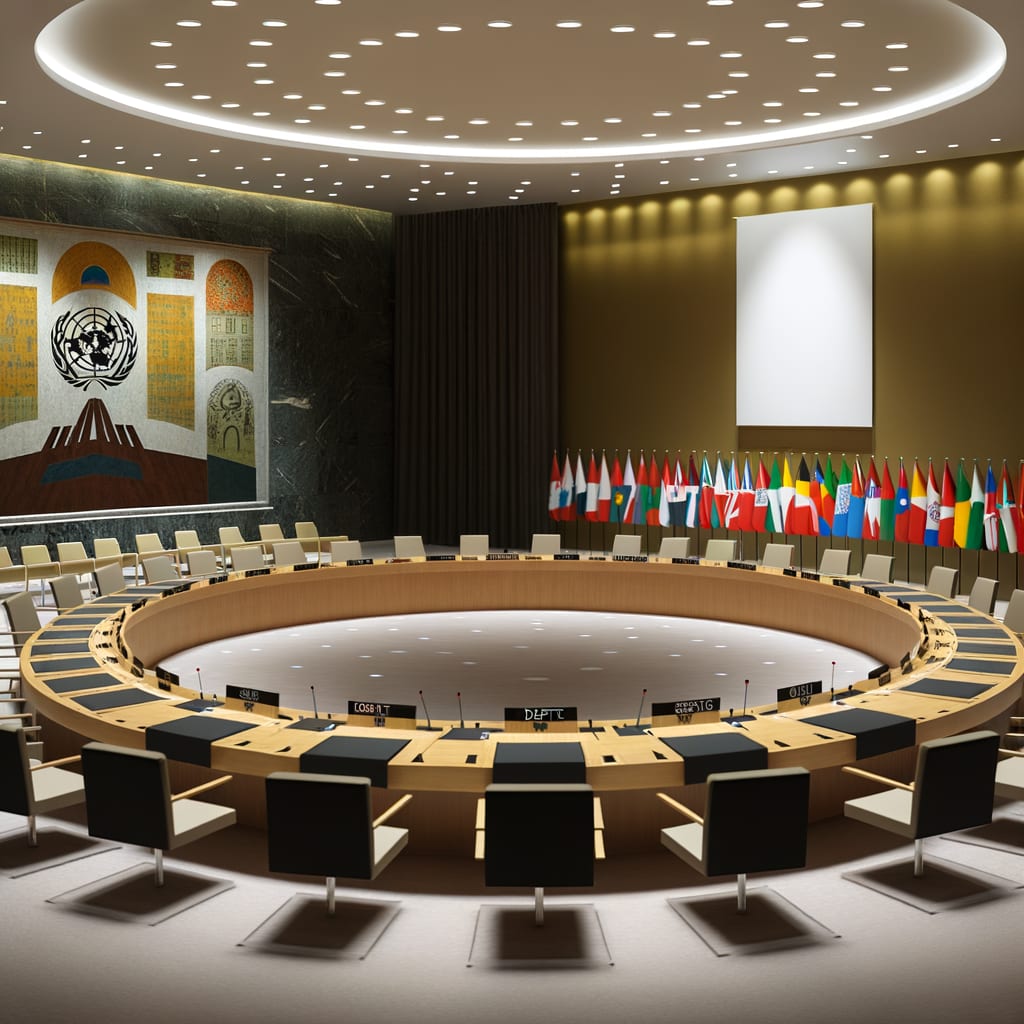UN Security Council Approves US-Drafted Resolution on Gaza
The United Nations Security Council (UNSC) approved a US-drafted resolution on Gaza, endorsing President Trump's 20-point peace plan, and authorizing an international stabilization force
to demilitarize the region. The resolution, passed with 13 votes in favor, saw abstentions from Russia and China, while including a last-minute reference to a potential Palestinian state.
Background and Context
The resolution comes as the next phase of President Trump's plan for Gaza, with the establishment of an International Stabilisation Force (ISF) as a core element. The ISF is expected to include contingents from Arab countries and beyond to help provide security and train a new Palestinian police force. Notably, the US-drafted resolution also includes a reference to a future Palestinian state following pressure from Arab states.
Despite the approval, the resolution has been met with varied reactions and raised several concerns. The Palestinian factions warned that the resolution could strip them of their ability to manage their affairs, and Israel's Prime Minister Netanyahu opposed it.
Key Developments
The US-drafted resolution - UN Resolution 2803 - places Donald Trump in control of Gaza and hints at the creation of a Palestinian state if certain targets are met, although it provides no timeline or guarantees. The resolution was passed with 13 votes in favor, while China and Russia abstained.
U.S. Ambassador to the United Nations, Mike Waltz, said the resolution charted “a new course in the Middle East for Israelis and Palestinians and all the people of the region alike.” He further added that Trump’s historic Middle East peace plan is the only way forward.
Implications and Reactions
The US proposal has drawn criticism for potentially functioning as political cover for Israel’s ongoing military campaign. It has also been seen to pave the way for American control over Gaza and delay Palestinian statehood. There are concerns about the resolution's vague wording and unclear commitments, and Israel's persistent opposition to a Palestinian state is seen as a significant obstacle.
Meanwhile, Russia and China, who abstained from the vote, argued that the resolution contains practical caveats that could undermine the two-state solution concept.
Conclusion
Despite the approval, the path to peace remains unclear. The resolution's broad language leaves room for interpretation, and Israel's opposition, along with the abstentions from Russia and China, suggest that the road ahead could be challenging. With the international stabilization force given the green light, the world will watch closely to see how this resolution will impact the crisis in Gaza and the larger issue of peace in the Middle East.

